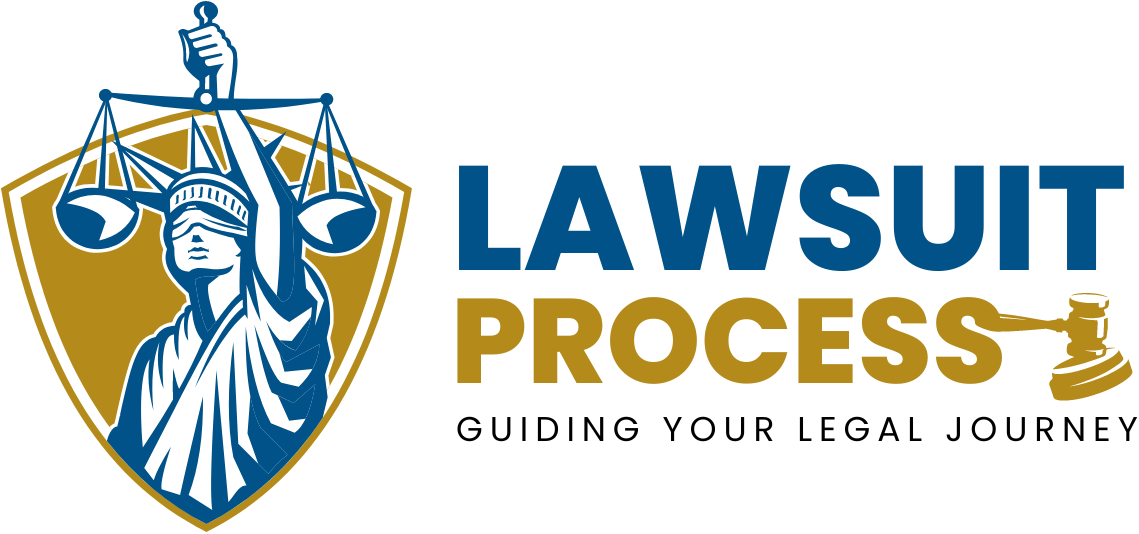Here are some of the top 10 common FAQs about DUI laws. But first, note that Driving Under the Influence (DUI) laws represent a critical aspect of traffic safety regulations that affect thousands of Americans annually. So, whether you’re seeking preventive information or dealing with a DUI situation, understanding these laws is crucial for making informed decisions, protecting your rights, and maintaining public safety.
This comprehensive guide addresses some of the top 10 frequently asked questions about DUI laws. It provides detailed explanations based on current legislation and legal practices across the United States.
Table of Contents
- 1. What is the legal blood alcohol concentration (BAC) limit for driving?
- 2. What exactly happens during a DUI checkpoint stop?
- 3. Can I legally refuse a breathalyzer test?
- 4. How much does a DUI conviction actually cost?
- 5. Will I definitely lose my driver’s license after a DUI?
- 6. How long will a DUI stay on my driving and criminal records?
- 7. Can I get charged with a DUI for prescription medications?
- 8. Do I really need a lawyer for a DUI charge?
- 9. How will a DUI affect my current and future employment?
- 10. Can I drive for rideshare companies if I have a DUI on my record?
1. What is the legal blood alcohol concentration (BAC) limit for driving?
Blood Alcohol Concentration (BAC) measures the percentage of alcohol in your bloodstream, calculated as grams of alcohol per 100 milliliters of blood. The standard legal limit in most U.S. jurisdictions is 0.08%, though this threshold is evolving as states adopt stricter standards. Utah became the first state to lower its limit to 0.05%, and several other states are considering similar measures following National Transportation Safety Board recommendations.
BAC limits vary significantly based on driver category and jurisdiction:
- General drivers: 0.08% in most states (0.05% in Utah)
- Commercial drivers: 0.04% nationwide under federal regulations
- Drivers under 21: 0.00% to 0.02% under “zero tolerance” laws
- Enhanced penalty thresholds: Additional sanctions at 0.15% to 0.20%
Critically, you can face DUI charges even with a BAC below these limits if law enforcement determines your driving is impaired. Many jurisdictions have adopted “impairment to the slightest degree” standards, allowing prosecution based on observed behavior regardless of BAC level.
2. What exactly happens during a DUI checkpoint stop?
DUI checkpoints operate under specific constitutional guidelines established by the Supreme Court in Michigan Department of State Police v. Sitz. These checkpoints must follow predetermined protocols to ensure both effectiveness and constitutional compliance. During a checkpoint stop, several systematic steps occur:
Initial Contact Phase:
- Officers observe your vehicle’s approach and stopping behavior
- Brief interaction to check license and registration
- Assessment of basic indicators: speech patterns, eye movement, and coordination
- Detection of any obvious signs of alcohol or drug use
If initial contact raises concerns, officers may proceed with:
- Standardized Field Sobriety Tests (SFSTs)
- Preliminary breath testing
- Additional questioning about alcohol consumption
- Examination of vehicle for open containers or other evidence
3. Can I legally refuse a breathalyzer test?
While you technically can refuse a breathalyzer test, doing so triggers serious consequences under “implied consent” laws. These laws establish that by operating a motor vehicle, you have implicitly agreed to chemical testing when requested by law enforcement under reasonable suspicion of impairment.
There are two distinct types of breath tests with different legal implications:
- Preliminary Breath Tests (PBT): Administered roadside, generally less accurate and primarily used to establish probable cause
- Evidential Breath Tests: More accurate tests conducted at police stations using calibrated equipment
Refusing an evidential breath test typically results in:
- Automatic license suspension (often longer than a DUI conviction)
- Potential mandatory jail time in some jurisdictions
- Additional fines and penalties
- Use of refusal as evidence in court proceedings
- Possible installation of ignition interlock device
4. How much does a DUI conviction actually cost?
The total financial impact of a DUI conviction typically ranges from $5,000 to $20,000 or more, encompassing both immediate and long-term expenses. Understanding these costs helps illustrate why prevention is crucial.
Immediate Financial Obligations:
- Court fines and penalties: $500 to $2,000+
- Bail or bond costs: $500 to $1,000
- Legal representation: $2,500 to $10,000+
- Towing and impound fees: $100 to $800
- Emergency response fees: $200 to $2,500
Ongoing and Long-term Costs:
- License reinstatement: $100 to $500
- DUI education programs: $500 to $2,500
- Increased insurance premiums: 100% to 300% increase for 3-5 years
- Ignition interlock device: $500 to $1,500 annually
- Mandatory drug/alcohol assessment: $200 to $500
5. Will I definitely lose my driver’s license after a DUI?
License suspension following a DUI arrest occurs through two separate processes: administrative suspension and court-ordered suspension. The duration and terms depend on several factors, including jurisdiction, BAC level, and prior offenses.
Administrative License Suspension:
- Triggered by arrest or test refusal
- Takes effect within 30 days of arrest
- Duration: 90 days to 1 year for first offense
- Separate from criminal court proceedings
Court-Ordered Suspension:
- Imposed upon conviction
- First offense: 3 months to 1 year
- Second offense: 1 to 3 years
- Third or subsequent offense: 3 years to permanent revocation
Many states offer alternatives to help maintain limited driving privileges:
- Restricted licenses for essential travel
- Hardship licenses based on demonstrated need
- Early reinstatement with ignition interlock installation
- Occupational licenses for work-related driving
6. How long will a DUI stay on my driving and criminal records?
A DUI conviction creates multiple records with different retention periods and implications. Understanding these distinctions helps in managing the long-term impact of a conviction.
Driving Record Impact:
- State DMV records: 5-10 years visible history
- Commercial driving records: Minimum 10 years
- Insurance company access: Often beyond visible period
- Federal regulations: Permanent for commercial drivers
Criminal Record Implications:
- Misdemeanor DUI: Permanent unless expunged
- Felony DUI: Permanent with limited expungement options
- Background check visibility: Varies by state and employer
- International travel implications: May affect border crossing
7. Can I get charged with a DUI for prescription medications?
Yes, you can face DUI charges for legal prescription medications if they impair your driving ability. DUI laws focus on impairment rather than the legality of the substance causing it. Understanding medication-related DUI helps avoid unintentional violations.
Common Medications Leading to DUI Charges:
- Sleep medications (Ambien, Lunesta)
- Anti-anxiety medications (Xanax, Valium)
- Pain medications (especially opioids)
- Muscle relaxants
- Some antihistamines and cold medicines
Law enforcement detection methods include:
- Drug Recognition Expert (DRE) evaluations
- Blood tests for medication levels
- Modified field sobriety tests
- Observed behavior and driving patterns
8. Do I really need a lawyer for a DUI charge?
While self-representation is legally permitted, the complexity of DUI cases makes professional legal representation highly advisable. DUI defense involves intricate legal, scientific, and procedural elements requiring specialized knowledge.
Critical Areas Where Legal Expertise Matters:
- Constitutional challenges to stops and arrests
- Scientific challenges to chemical testing
- Negotiation with prosecutors
- Administrative hearing representation
- Evidence evaluation and suppression
Potential Defense Strategies:
- Challenging probable cause for the stop
- Questioning testing procedure validity
- Examining maintenance records for testing equipment
- Investigating officer qualifications
- Identifying constitutional violations
9. How will a DUI affect my current and future employment?
A DUI conviction can significantly impact your professional life through various direct and indirect consequences. Understanding these effects helps in developing mitigation strategies.
Immediate Employment Impacts:
- Required reporting to professional licensing boards
- Temporary suspension from safety-sensitive positions
- Transportation difficulties during license suspension
- Time off requirements for court appearances
Long-term Career Implications:
- Professional license restrictions or revocation
- Security clearance complications
- International travel limitations
- Reduced career advancement opportunities
10. Can I drive for rideshare companies if I have a DUI on my record?
Rideshare companies maintain strict policies regarding DUI convictions, prioritizing passenger safety and liability management. These policies typically exceed state and local requirements for commercial drivers.
Standard Industry Policies:
- Uber: No DUI convictions within 7-10 years
- Lyft: Zero tolerance for DUI convictions within 7 years
- Local rideshare services: Similar or stricter standards
- Permanent bans for multiple offenses
Additional Considerations:
- Background checks conducted annually
- Immediate deactivation upon discovery
- Limited appeal processes
- State-specific variations in requirements
Final Thoughts
Understanding DUI laws requires considering multiple factors, from scientific measurement methods to varying state regulations and enforcement practices. While this guide provides comprehensive information about common DUI-related questions, remember that laws continually evolve and vary by jurisdiction. For specific legal advice, always consult with a qualified DUI attorney in your area.
Prevention remains the most effective strategy against DUI charges. This includes:
- Planning alternative transportation before consuming alcohol
- Understanding how medications affect your driving ability
- Staying informed about local DUI regulations and enforcement practices
- Maintaining awareness of your own impairment levels
- Being prepared with contact information for local transportation services
By understanding these laws and planning ahead, you can better protect yourself while contributing to safer roads for everyone. Remember that DUI laws exist not just as legal requirements but as essential safeguards for public safety.
Additional Articles on DUI and DWI










